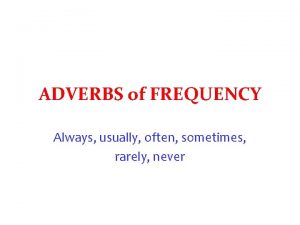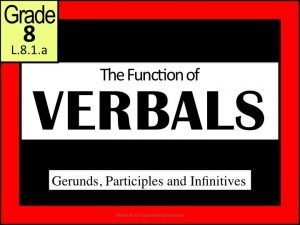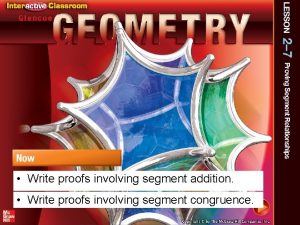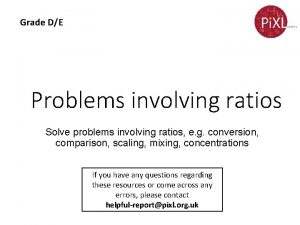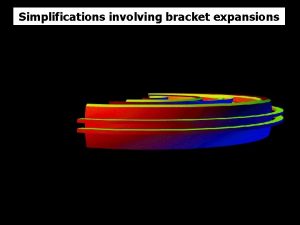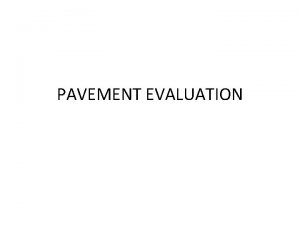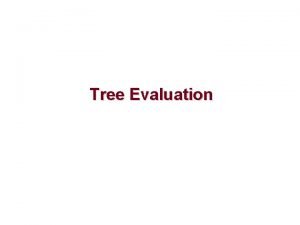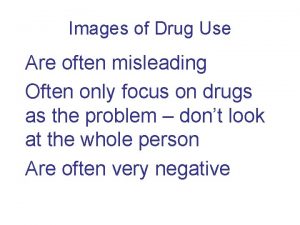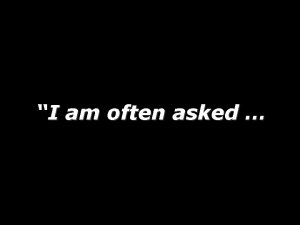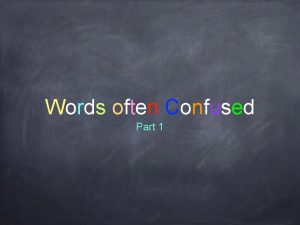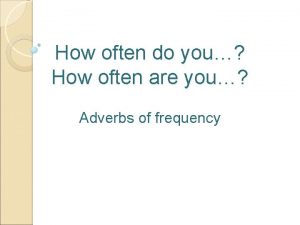Involving Teachers in Evaluation Teachers are often the













- Slides: 13

Involving Teachers in Evaluation

Teachers are often the object of an evaluation but frequently are not involved in any other part of it.

With participation, we must broaden teachers’ views of the purpose of evaluation

Teachers will ultimately implement most actions that stem from an evaluation of an instructional program.

What the Literature teaches us… Use stakeholders who are served by the program and use stakeholders in the decision-making process (Cai, 1996; Cousins, 1995; Johnson, 1993; Mc. Cormic, 1997; Preskill & Caracelli 1997; Sperlazza, 1995)

What the Literature teaches us… Use stakeholders as part of an organizational improvement process that results from participating in evaluation, or what might be described as process use in evaluation (Patton, 2003).

What the Literature teaches us… Use stakeholders as a way to build evaluation capacity. When stakeholders engage in a systematic process that identifies actions and outcomes, the individuals within the organization have a better understanding of what those actions are and how they lead to outcomes (Cousins, 2010).

We wrote a semi-fictional story that… Reflected the context and major findings from the evaluation. Allowed teachers to be “outside observers” in defining the problem. Encouraged authentic inquiry and discussion of the evidence.

We facilitated a dialogue on. . . Current Reality • What does the evidence tell us? • What barriers and beliefs impede us?

We facilitated a dialogue on. . . Current Reality • What does the evidence tell us? • What barriers and beliefs impede us? Future State • What beliefs and behaviors must be affirmed? • What strategies and structures are needed?

We empowered teachers by… Capturing their collective thinking, Synthesizing their ideas, Incorporating their input into the action plan

Attractiveness/Capacity Grid Capacity to Implement Plan Attractiveness of Plan No Yes 17% 46% No 8% 29%

Lessons Learned & Questions • Engage teachers in evaluation in culturally and professional sensitive ways • Engaging teachers in evaluation is a mechanism for reflective practice • Engaging teachers in evaluation develops shared ownership of a systemic problem
 Insidan region jh
Insidan region jh Very often often sometimes rarely never
Very often often sometimes rarely never Kim kroll
Kim kroll Tư thế ngồi viết
Tư thế ngồi viết Thế nào là giọng cùng tên?
Thế nào là giọng cùng tên? Thể thơ truyền thống
Thể thơ truyền thống Bài hát chúa yêu trần thế alleluia
Bài hát chúa yêu trần thế alleluia Khi nào hổ mẹ dạy hổ con săn mồi
Khi nào hổ mẹ dạy hổ con săn mồi Diễn thế sinh thái là
Diễn thế sinh thái là Vẽ hình chiếu vuông góc của vật thể sau
Vẽ hình chiếu vuông góc của vật thể sau Công thức tính độ biến thiên đông lượng
Công thức tính độ biến thiên đông lượng 101012 bằng
101012 bằng Tỉ lệ cơ thể trẻ em
Tỉ lệ cơ thể trẻ em Thế nào là mạng điện lắp đặt kiểu nổi
Thế nào là mạng điện lắp đặt kiểu nổi

